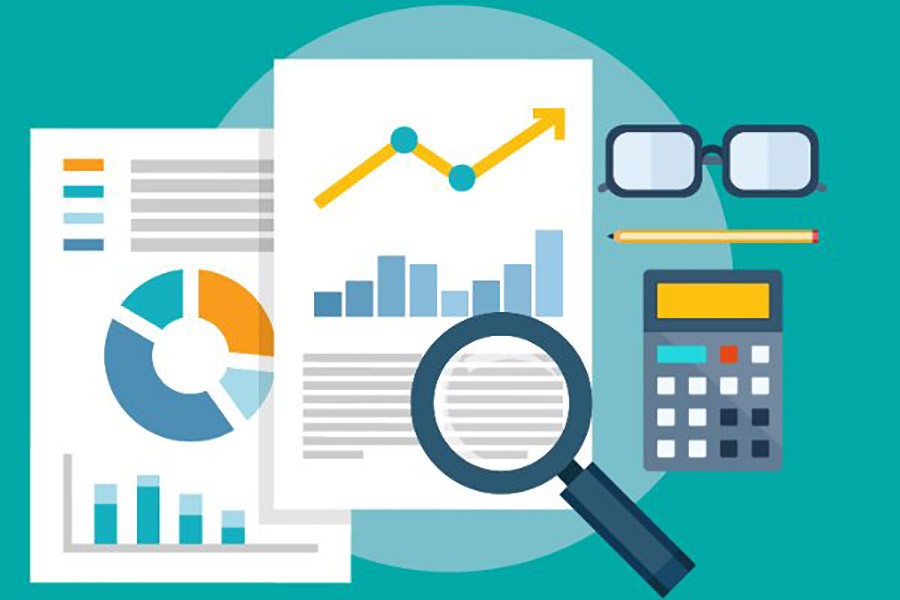
Published :
Updated :

The Bangladesh Bureau of Statistics (BBS) collects, produces and generates most of the data or figurative information in Bangladesh. There is no other organisation competent enough to do the same. The BBS, a government entity, carries out routine work of collecting data and publishing them yearly or at intervals. Analysing the data or making qualitative statement on the data is not its business. The users of the data, who range from government organisations to private individuals, greatly depend on the BBS data. International agencies like the World Bank and the Asian Development Bank also depend on the BBS data while making their reports on the Bangladesh economy and related issues. These organisations qualify the BBS-produced data in their own ways by screening them through various tests. The researchers, who use the BBS data for research purposes, also put these to scrutiny so that they can come to a more meaningful conclusion from their research results. In the recent days, economists and the users at large are found to be raising questions as to the accuracy of the BBS-produced data. The economists are found to be questioning the very methodology of collecting and producing the data by the BBS. This type of criticism was not there in the past. Though the BBS had always been a government organisation, nobody raised any question about the accuracy of the data it had been producing over the years. Controversies with regard to the accuracy of the BBS data arose only recently when the economists could not agree with the government claim about gross domestic product (GDP) growth rate in the economy. The government was found to be always putting GDP growth rate some points ahead of what others found to be saying as the accurate rate. The government is embroiling itself every year in controversies with regard to GDP growth rate while the leading economists and the international financial institutions like the World Bank and the Asian Development Bank question its estimated GDP growth rate.
The other areas of contention are the inflation and investment rates in the economy. While debate on the economic issues is welcome, the controversy with regard to accuracy of data, which are used to calculate various macroeconomic parameters in the economy, is not good. If we cannot overcome the controversy with regard to the quality of BBS data, which are used to calculate the macroeconomic variables, we will never be able to take those variables seriously for evaluating the state of the economy.
What can be done to improve the quality or ensure the accuracy of the BBS data? The users and the critics in general now feel that the very ownership of the BBS by the government is responsible for the deteriorating quality of its data. It is also alleged that this very important organisation of the government is poorly staffed. It is very often headed by a bureaucrat, or a generalist at best, instead of by a renowned statistician or a specialist in the area.
Meanwhile, the ways and methodology of collecting data-related information has undergone a big change with the digitalisation of the economy. The old ways of collecting information and figurative data by sending collectors or surveyors is no longer relevant. Now-a-days, the data and information, in much more larger volumes, are being quickly generated by the digitalised automatic systems. Persons who are entrusted with the job must know the information technology, besides being experts in the subject of statistics and the related disciplines.
Bangladesh should study how other countries organised their statistical organisations. A more important issue is, whether BBS should be allowed to remain fully under government ownership or some sort of autonomy be granted to this organisation so that it can perform its work independently. This writer prefers the latter option. BBS should be headed by a specialist whose salary, as well as terms and conditions of appointment should be a negotiated one.
Simultaneously with strengthening the BBS, the government should encourage some other organisations under trusteeship for the purpose of collecting data and information and disseminating them to the public. The government should also consider enacting a law for establishing an organisation which can be named as a Commission or Authority for the purpose of collecting, producing and disseminating figurative information to the users and the people at large. The trustworthiness of this type of organisation does matter. We wonder how the BBS an organisation trusted with the collection, generating and dissemination of data, still remains a 'Bureau'! The Bangladesh economy has now attained a much more bigger size than what it was in the past. The public will want to know more information from the organisation trusted with the collection and dissemination of data. The data and information collecting agencies are nowhere in the world now under the executive branch of the government. So long the BBS remains so, we see no hope of having controversy-free data in the economy. If we cannot repose confidence in the available figurative information, then whatever we say with regard to achievement in the economy will carry little credibility.
Professor of Economics University of Dhaka email: abuahmedecon@yahoo.com


 For all latest news, follow The Financial Express Google News channel.
For all latest news, follow The Financial Express Google News channel.